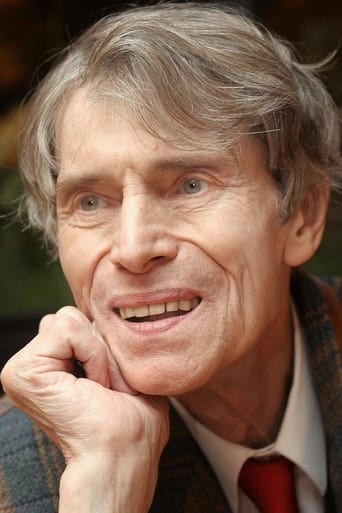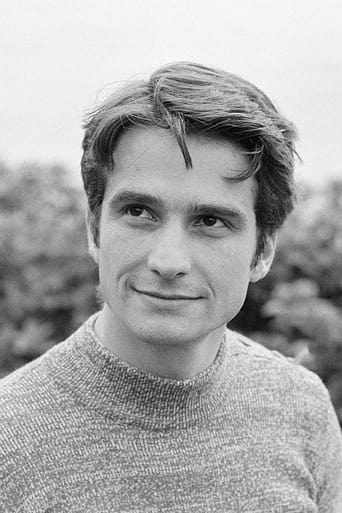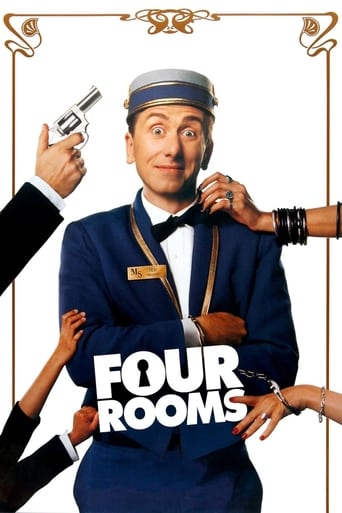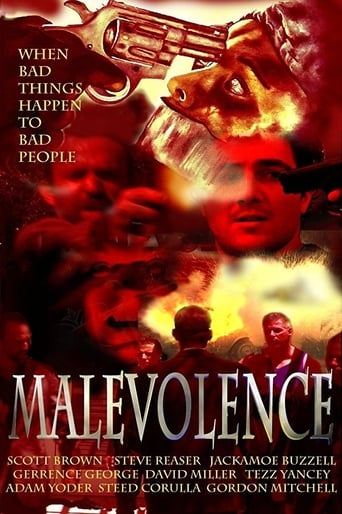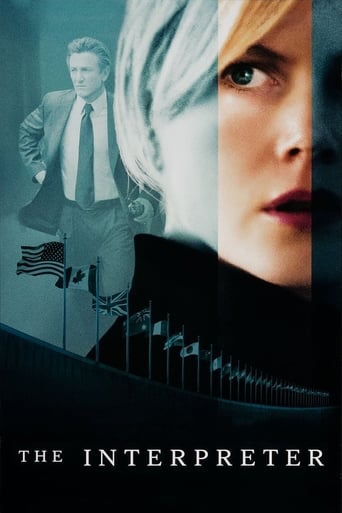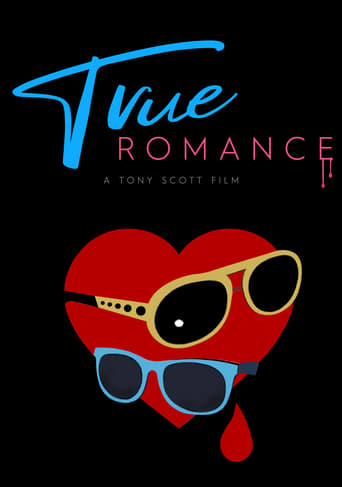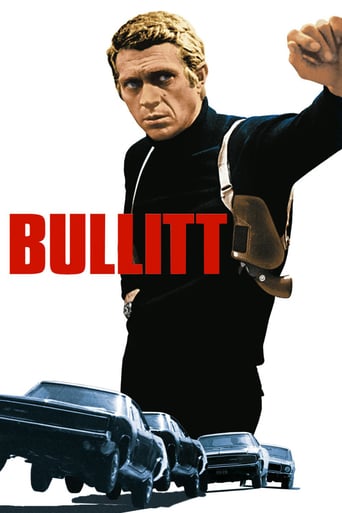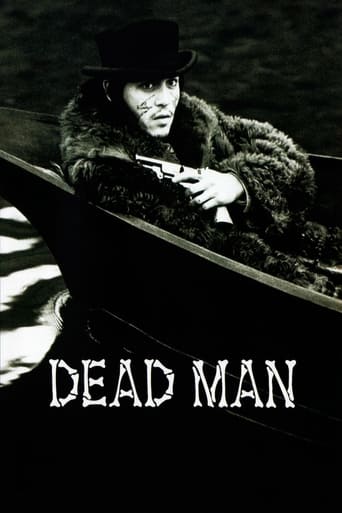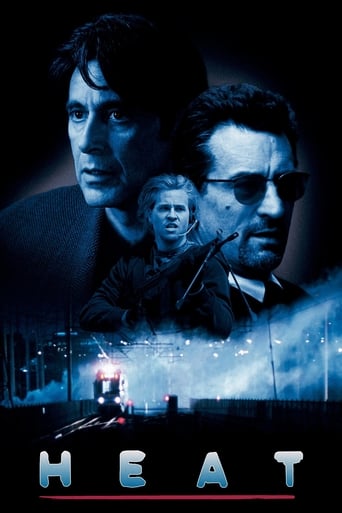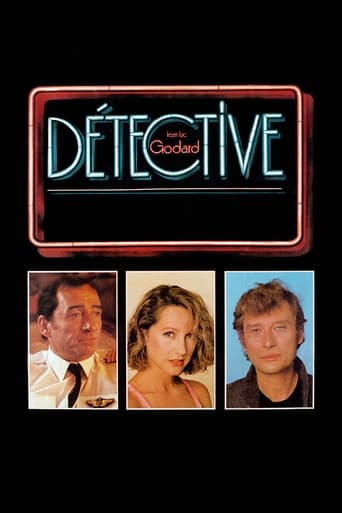
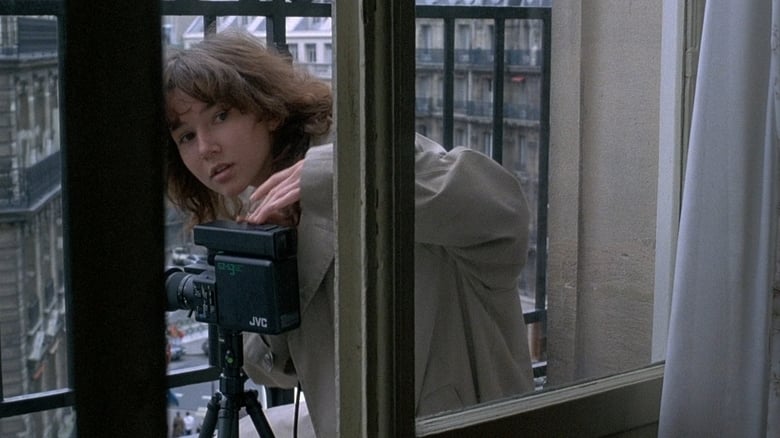
Detective (1985)
Emile Chenal and his wife, Françoise, leaned on boxing manager Jim Fox Warner to cough up the considerable sum of money that he owes them, with both the police and the mob circling the situation. In the same hotel, Inspector Neveu looks into a murder that took place years before, and his storyline overlaps with the arc of the Chenals.
Watch Trailer
Cast


Similar titles
Reviews
Jean-Luc Godard directs "Detective". The plot? A series of guests and employees find themselves bumbling about a Parisian hotel. One, a detective named Prospero, hopes to solve the murder of a man known as The Prince. Also present is a woman named Francoise (Nathalie Baye), who's unhappily married to an airline pilot (Claude Brasseur). She's at the hotel to settle a debt with Jim Fox-Warner (Johnny Hallyday), a fight promoter. Jim shares a room with a star boxer (Stephane Ferrara) and an entourage of young women. Whilst all these characters drift about, a Mafia godfather, also known as The Prince, discusses philosophy. He's slavishly followed by a catatonic little girl. "Detective" periodically cuts away to shots of a tripod-mounted camera as it gazes at life outside the hotel. Godard also frequently cuts to shots of neon-lit billboards, all advertising media brands. His hotel is itself populated by different "brands" or flattened "archetypes" (detectives, boxers, singers, lovers, nods to crime films, film noirs, slapstick comedy etc), as well as actors who come from different performance backgrounds and traditions (Johnny Hallyday is a singer, Jean-Pierre Léaud is associated with the New Wave, Alain Cuny is a classic French actor, Baye and Brasseur are mainstream actors, Seigner and Delpy signal a new generation etc).Ironically for a film explicitly commissioned to make money – Godard promised producers a mainstream picture in order to secure cash to finance his upcoming "Hail Mary" - "Detective" is a kind of anti-film about money. It opens with Francoise apprehensive about entering the hotel, which characters insist "smells of death". Like most of the film's characters, though, she's owed payments and so forced to enter. Indeed, everyone in "Detective" is chasing cash. Fighters seek riches, gangsters want repayment, characters sell jewelry and Francoise and her husband are down a couple million. "What's the point running around for nothing?" characters state. Man's gotta be paid, actors too. Significantly, the guy doing the paying is named after two Western, mega-film studios (Fox-Warner).Whilst these disgruntled characters seek payment, the film's detectives are locked in their own little subplot. "We're looking for the unknown!" one detective says, as he prowls the hotel's catacombs. He and his companions are always searching for "truth", "plot" and "story", all of which seem elusive and out of reach. "There are plenty of stories here" Prospero insists, "Im sure something is going to happen!" Of course nothing happens. Godard's "Detective" is a giant morass of non-events, inaction, banal conversations and subverted subplots. A kind of anti-film about nothing happening in which the actors of the film in which nothing happens are grumpy because they're only turning up to be paid and nobody's paying. Godard's films often attack the business of film-making, but with "Detective" we get a more vague attack on all economic relations. "The monkeys preached the new order, and little by little all the animals converted," one character says. We're then told a story about a mouse who is killed by his "new friends". "Things have gone back to the way they were," the Prince explains, "the new regime is over, beauty has become the beast!" Alligned to this "new economic order", in which "everyone is slavishly forced to submit", are the film's outmoded Mafia-men. Whilst a girl reads a magazine titled "Crackdown on the Mafia", a Mafia kingpin admits: "the mafia insists upon an outmoded way of life based on work and effort outside of which all existence loses all meaning." The kingpin then explains that the mafia has been forced underground by the "new order" and that "the mafia itself needs law and order to construct its business deals successfully". Later, a woman compares the hotel's mafia-men to banks, in comparison to which, she says, the mafia-men are angels.During the film's last act, Godard cuts to a movie director on television. "The narrator is king," the figure says, "making things happen with his own perception! I'm making this picture for the theatre, not the actors!" We assume Godard is referring to himself, the director as king, but soon someone else is revealed to be in control. At this point, in one swift move, the Prince has all the film's key players killed and steals all their cash. "Put up a fight! Retake it!" Francoise says, leading her husband to stand up to the Prince, before being killed himself. Seeking justice, the detective's female assistant crouches before the Prince and aims a gun, but her efforts are futile. The Prince casually disarms the woman. She then passively walks away and makes a joke about acquiring money. This scene encapsulates the power relations of the film, the Prince representing ruling groups within capitalist democracies (and their rigid social hierarchies), the dead detectives akin to neutralised justice systems and the corpses at everyone's feet hinting at the costs of the Prince's "new order". "The world is upside down," Godard says, throughout a complicated subplot which serves as a metaphor for why the Prince manages to be simultaneously dead and alive."Détective" is a film obsessed with books. Francoise wants to start a bookshop, the detectives are surrounded by paperbacks, Jim carries a copy of Conrad's "Lord Jim" (about a colonialist who sees himself on a civilising mission), Prospero reads "The Tempest" (a Shakespeare play with a character called Prospero) and the gangsters read "The Sicilian". Contrasted with the film's violent characters is an overarching discourse on love, the film's criss-crossing love affairs made impossible for various reasons, most of which are financial. Francoise's husband represents this love at its purest, but he's killed. Only the apathetic survive. This being Godard, "Detective" is relentlessly alienating. Godard's credits are interspersed throughout the picture, leading to a sense of disjunction and dislocation. The film's score is likewise disorienting. Epitomizing Godard's alienating effects are "Detective's" closing moments, which focus on feet, reflections, doors and use odd angles, all designed to obscure. 7.9/10 - Multiple viewings required.
My first foray into 80s Godard - haven't even seen any early stuff for years - benefits from the old showdown between Godard's European attenuation and the outrageous vulgarity he mines from his Yankee progenitors. All gangster-film elements are here, and all are brutally alienated from their original contexts. Noir-style orchestral punctuation marks blurt and disappear incongruously; frequently topless femmes fatales occasion some pretty smart-to-funny gender commentary, especially the pugilist's boob-boxing scene; the big massacre at the climax seems to fall right out of the sky. Best of all is Jean-Pierre Leaud's lurking schmuck detective, a great goof of a performance that gives a big boost to the film's sense of rhythm. Because the pleasures are largely on the surface, I'll have to run it again before I can tell you much about the plot, and about an hour in the working-through of the themes gets a little too talky. But the arm's length treatment of the source material distills rather than diffuses their entertainment value: good arty fun.
This movie is said to have been filmed by Godard on commission from producer Alain Sarde, but it's by no means your ordinary "commissioned movie":it does boast a cast with well-known stars (at least in France) and it retains all the crime movie's stereotypes ( as gangsters, guns, boxers, girls, moneys changing hands...), but all of them are put together in a unique and mesmerizing way. Think of those exploded views you sometimes find in technical magazines: more often than not you can hardly tell what the represented object is supposed to be, nevertheless you always lose yourself gazing at those craftily drawn little pieces, until the object itself is deprived of any functional meaning and become only a sheer, pure sign. Though it's still possible to keep track of the plot and to draw something like a sequential chain going through the scenes, doing so is the best way to miss what this movie have really to offer: a collection of beautifully shot "vignettes", varying from amusing (Jean-Pierre Léaud freaking out in various disguises) to sublime (the "breast boxing" scene), each one to be tasted as a separate entity. There are plenty of quotes from books and other movies too, to the entertainment of the most encyclopedic among the audience (not that these quotes are introduced in the most subtle way: often the characters reads them from the actual books and you can easy spot the titles on screen! ) . Let's face it: it may be not a masterpiece, since sometimes the screenplay seems to have been conceived with the only aim of pushing you away from the screen, but the persevering viewer will be rewarded with some endearing little gems.
The films in Godard's late (and not yet over) period present some of the greatest challenges to cineasts. Detective is no exception. It is extraordinarily complex in narrative (or, more precisely, anti-narrative), visual composition, and editing structure. Unfortunately, I don't think it's worth it. It's kind of a parody of a detective film (the one in this film is a hotel dick), but it's nearly impossible to figure out what's going on. It can be quite beautiful in its visuals and editing patterns, but never beautiful enough to make it worth seeing. It's not terrible, but, then again, it's not good, either. 6/10P.S. First off, yes, the little girl IS Julie Delpy, in case you were wondering.P.P.S. Remember when Martin Scorsese made his version of Cape Fear for MGM because they allowed him to make the highly personal The Last Temptation of Jesus Christ? Well, he may have gotten that idea from Godard. Detective was made as a straight commercial offering to the studio that produced his highly controversial Hail Mary. It's strange to think of Detective as a commercial venture, though!


